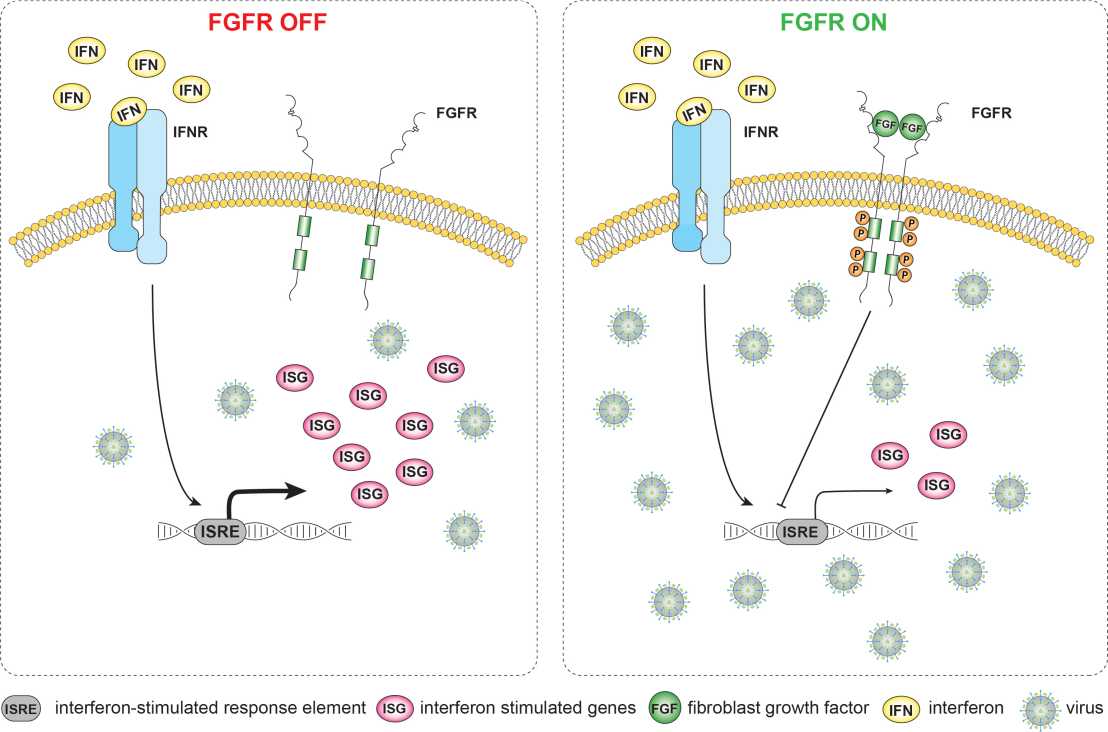Antagonism of interferon signaling by fibroblast growth factors promotes viral replication
A recent "EMBO Molecular Medicine" paper by the Werner group (IMHS) in collaboration with the Oxenius group (IMB) demonstrates a novel role of FGFs in the control of viral replication and suggests the use of FGF receptor antagonists for the treatment of viral infections.

Viral infections are a major threat to human health. Combating such infections and prevention of a pandemic requires the development of vaccines, but also of efficient therapeutics. Unfortunately, many therapeutics are virus-specific and/or have high toxicity. Therefore, the development of novel approaches for the treatment of viral infections is essential.
Researchers at IMHS identified a previously uncharacterized role of fibroblast growth factors (FGFs) in antiviral defense. FGFs efficiently suppress the interferon response and thus the expression of major antiviral genes and proteins under basal conditions and in response to interferon treatment or viral infections, while FGF receptor inhibition has the opposite effect.
The study suggests the use of FGF receptor inhibitors for the treatment of viral infections. This is a promising approach, since such inhibitors are already in clinical trials for the treatment of different types of cancers and are relatively well tolerated. Due to the wide-spread activities of FGFs and interferons, it will also be important to study the relevance of their unexpected cross-talk described in this study in various other human diseases as well as in tissue repair.
Link to the paper in external page EMBO Molecular Medicine.